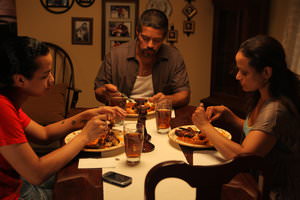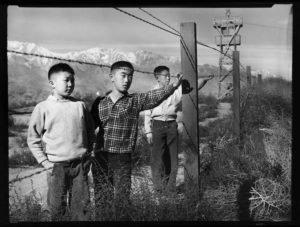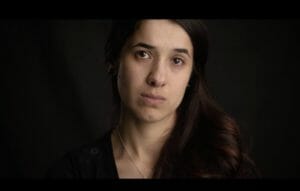The Story Behind ‘Gun Hill Road’
Writer-director Rashaad Ernesto Green tells us about why he set his film "Gun Hill Road" in the Bronx, finding a transgender actress to play the teen, how anyone who has ever been a teenager should be able to identify with the film, and the power of art.Writer-director Rashaad Ernesto Green tells us about his new film, "Gun Hill Road," starring Esai Morales as the father of a transgender teenager.
Writer-director Rashaad Ernesto Green’s new film, “Gun Hill Road,” tells the story of a family in the Bronx whose father, Enrique (Esai Morales), comes home after three years in prison to find his teenage son, Michael (Harmony Santana), transitioning to become Vanessa. His wife Angela (Judy Reyes) accepts her child and his desire to change gender, but Enrique, though he loves his son, has a hard time understanding him and coming to terms with his own ideas about masculinity.
Green, who grew up in the Bronx, based the movie on something that happened within his own family, and in his first feature film he wanted to offer a message that people should love one another for who they are. Just after his film opened in New York and before it opened in Los Angeles on Friday, Green told Truthdig contributor Emily Wilson about why he set the story in the Bronx, finding a transgender actress to play the teen, how anyone who has ever been a teenager should be able to identify with the film, and the power of art.
This was inspired by my own family who went through a similar experience as the family in this film. I watched this family deteriorate over the course of a few years because of the father’s inability to understand his child’s transition, but at the same time, loved his child so much. As an artist I wanted to make a piece of art that didn’t necessarily give them all the answers, but at least pointed them to the way of love and acceptance, and to eventually and, hopefully, bring them together.
How do you think a person like Enrique, or any of us who has set ideas of how our family should be, can change?
It’s hard to change your environment, your culture, your history, your parents and your religion that has led you to believe the things you believe. But with art we can start to break some of those barriers down. We can break the walls down with art.
If there is anyone who has that kind of visceral and violent response to their child’s transition, I hope they can see if you put love first. That is what’s paramount because everyone can identify with love and family. If they see the harm that they can be causing the child, for example, they might be able to change. Because the film presents the child’s struggle in a very humanizing fashion so they can identify with her and empathize with her. They might be able to battle their own hang-ups and their own paradigm might be able to shift as a result, but it’s only through education, awareness and a willingness to love.
You grew up in the Bronx and your parents are from there. How is this a Bronx film?
This family is inspired by my family, so I’m writing what I know. I’m writing about a very specific culture and a specific environment and I know that environment has influenced the way these characters think and their ideas of manhood and what it means to be a man, and I can write pretty confidently from that perspective. I feel like the more specific I am with this culture and this environment, the more universal the story becomes because everyone in their own environment can identify with similarities in this story. I just wouldn’t be able to write as confidently from another environment because I don’t know it as well.
What is universal about this story that anyone can relate to?
Anybody who has ever been a teenager or had a teenager, or if you’ve ever disagreed with what your parents thought would be ideal for your life, or if you’ve ever wanted something different for your child than what they want, I believe you can identify with this story for sure. Michael/Vanessa is a heartbreaking character. There’s nothing wrong with what she’s doing—all she’s looking for from her father is love and acceptance, and he wants to be able to do that; it’s just that he’s not necessarily given the tools to do it, so they’re fighting for that reconciliation.
What has the reaction to the film been like?
The response has been incredible from the audiences. They say they are laughing and crying, and it’s a real win for the community as well because it’s not often we get to see the complexities of our community and our families, and it’s something they can really identify with. I hope that carries on—that will be the test to see if the rest of the nation can identify with a New York story the way New York does.
Were there any films you looked to as a model?
I watched the trans films like “The Crying Game” and “Transamerica” and “Boys Don’t Cry.” But this story, it’s not really about the transgender scene. The film is about a family coming to terms with their child’s change and about love and acceptance. Those other films are about the change itself. Well, “Transamerica” and “Boys Don’t Cry.” “The Crying Game” was something completely different. In this movie for the first time in recent history we’re getting to see a trans character played by a real live trans person. It also makes it different in that way where we get the truth and the details from a person who’s actually gone through this experience. It’s so specific a world, and what I wanted to portray on the screen was authenticity.I read that you wrote the role of the father for Esai Morales. Why did you want him?
I’ve been a fan of his since I was a child. I saw him in “La Bamba” when I was 8 years old, and I’ve loved Esai Morales since that time. What I was looking for specifically in that character was someone who could really have that street-hardened edge and at the same time have a sense of vulnerability. He could not just be hard. That would have made that into a stereotype people would have written off. I wanted someone who could play both the hard and the struggle, and it’s clear I made the right choice.
Also he’s one of these actors who haven’t been given his due in Hollywood. He’s an incredible performer, and there haven’t been the roles for him to play. There aren’t a lot of Latino filmmakers writing these roles and giving him a chance to sink his teeth into these kinds of characters.
What are you proudest of about the film?
Everything came together quite quickly. It’s been a very blessed journey, and when someone comes up to me after a screening with tears in their eyes thanking me for telling this story, and having this character, it’s a great feeling, and I feel like I’ve done my job as an artist.
Any parent who might have a trans child or a gay child, or a trans person, to see them appreciative and saying, “Thank you for putting this on the screen,” seeing that response, it’s a wonderful feeling that I’m able to touch people and affect them.
This is a story that needs to be told, and it’s not a story that should only be presented to those who are open-minded, but it’s a universal story that I hope opens a lot of minds and a lot of hearts to the struggles of this family.
Also, oftentimes we see films about the community made from someone outside the community. This time we get to hear from the community itself, and it’s attempting to present an authentic voice.
Your support matters…Independent journalism is under threat and overshadowed by heavily funded mainstream media.
You can help level the playing field. Become a member.
Your tax-deductible contribution keeps us digging beneath the headlines to give you thought-provoking, investigative reporting and analysis that unearths what's really happening- without compromise.
Give today to support our courageous, independent journalists.






You need to be a supporter to comment.
There are currently no responses to this article.
Be the first to respond.